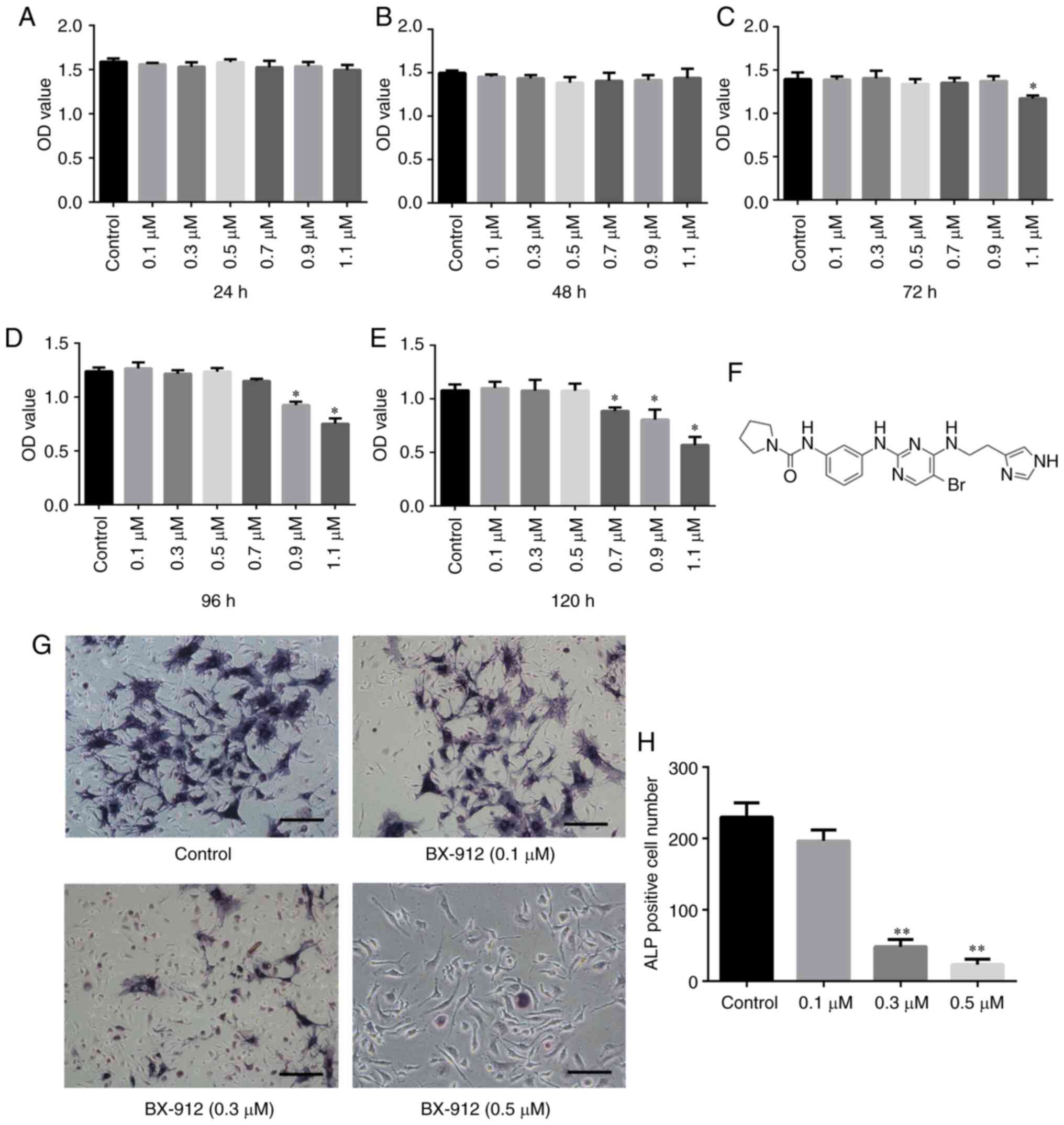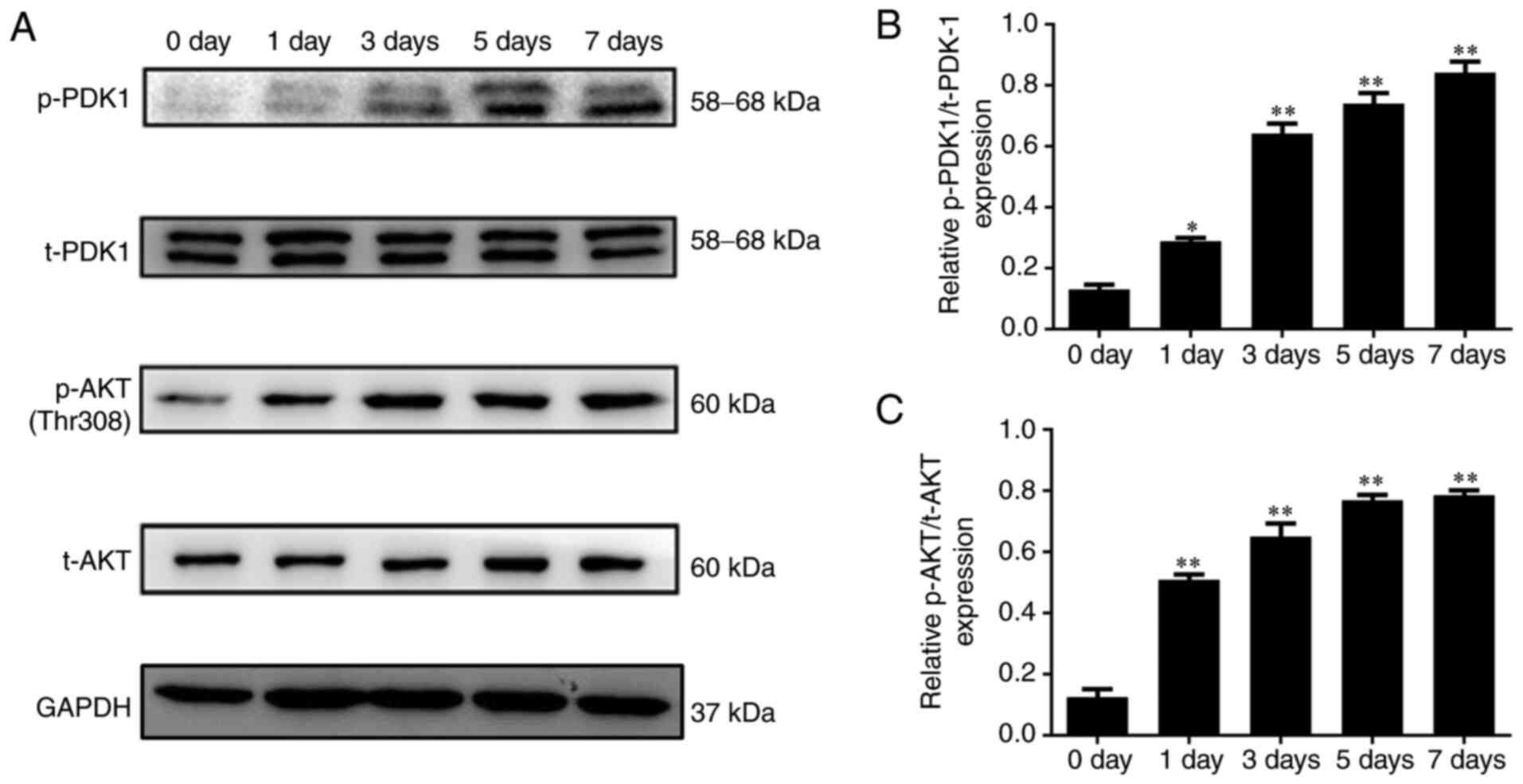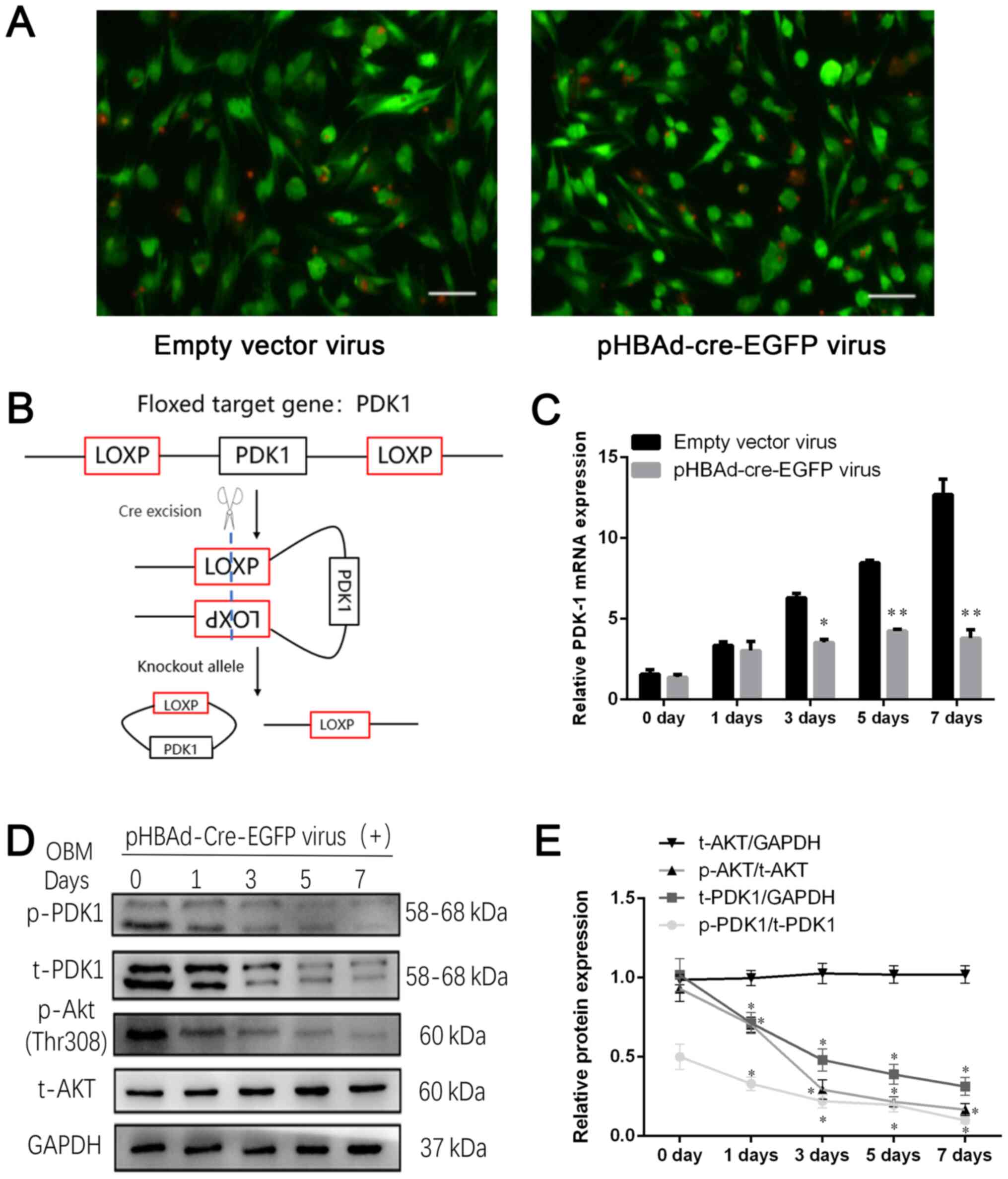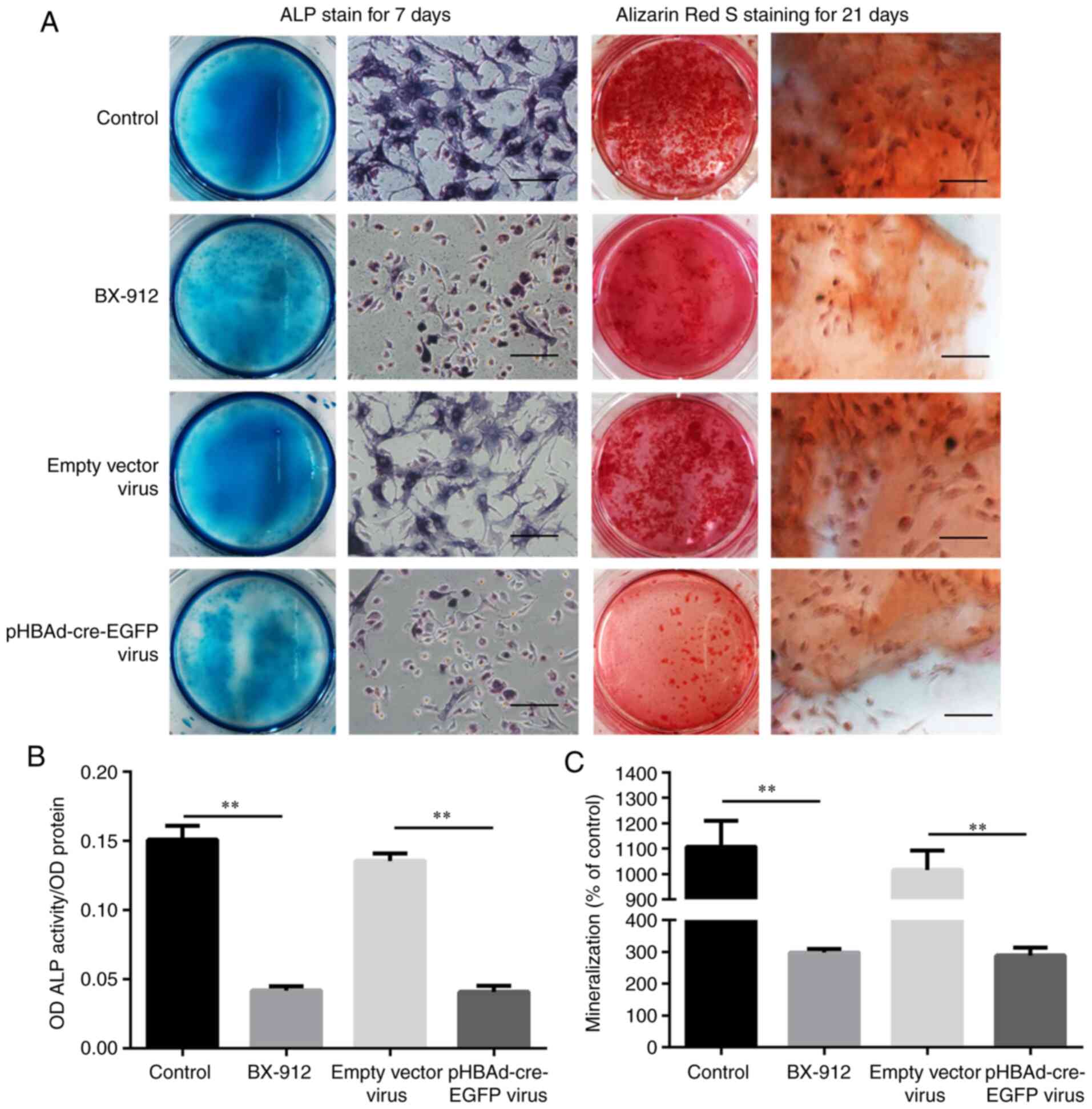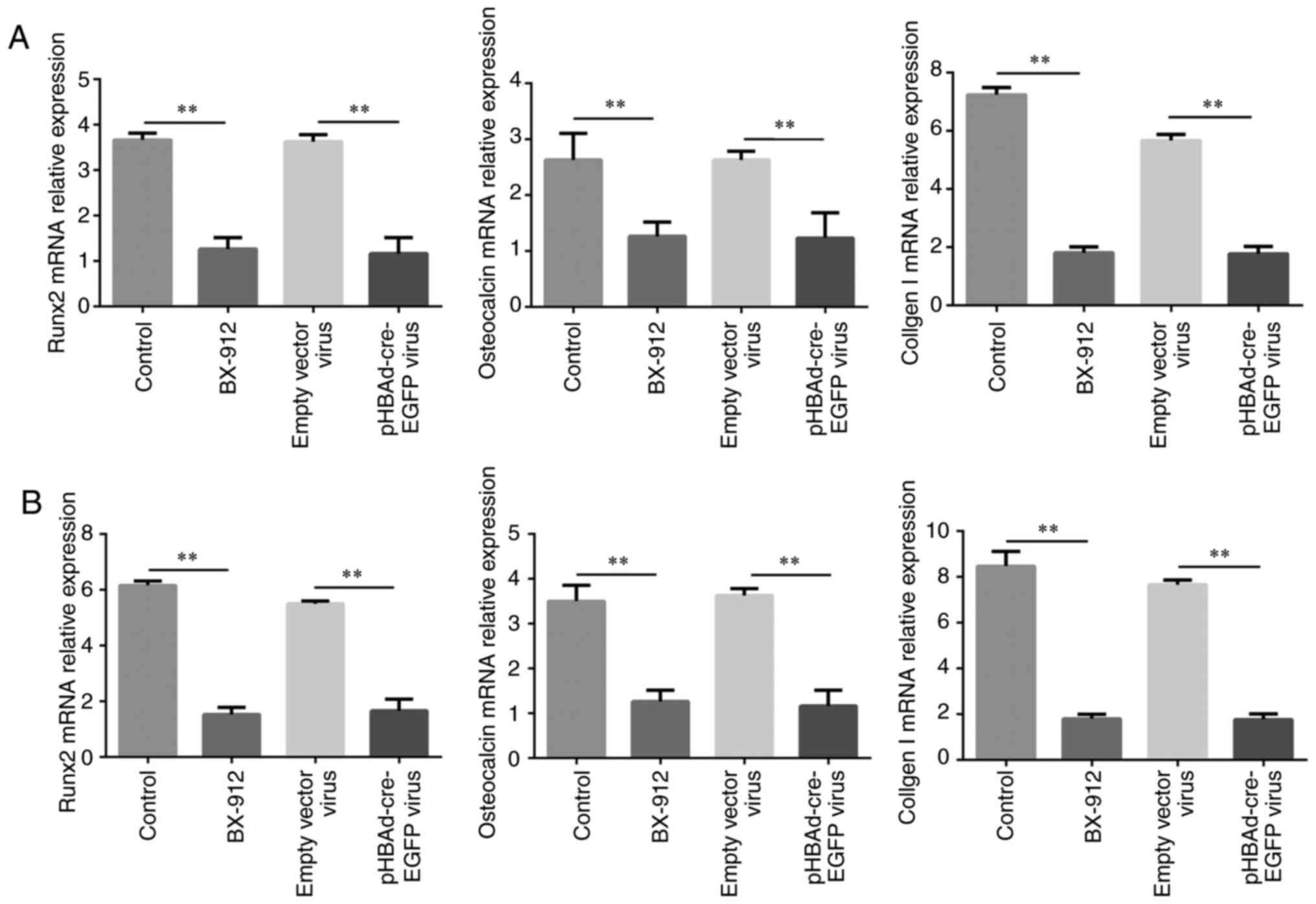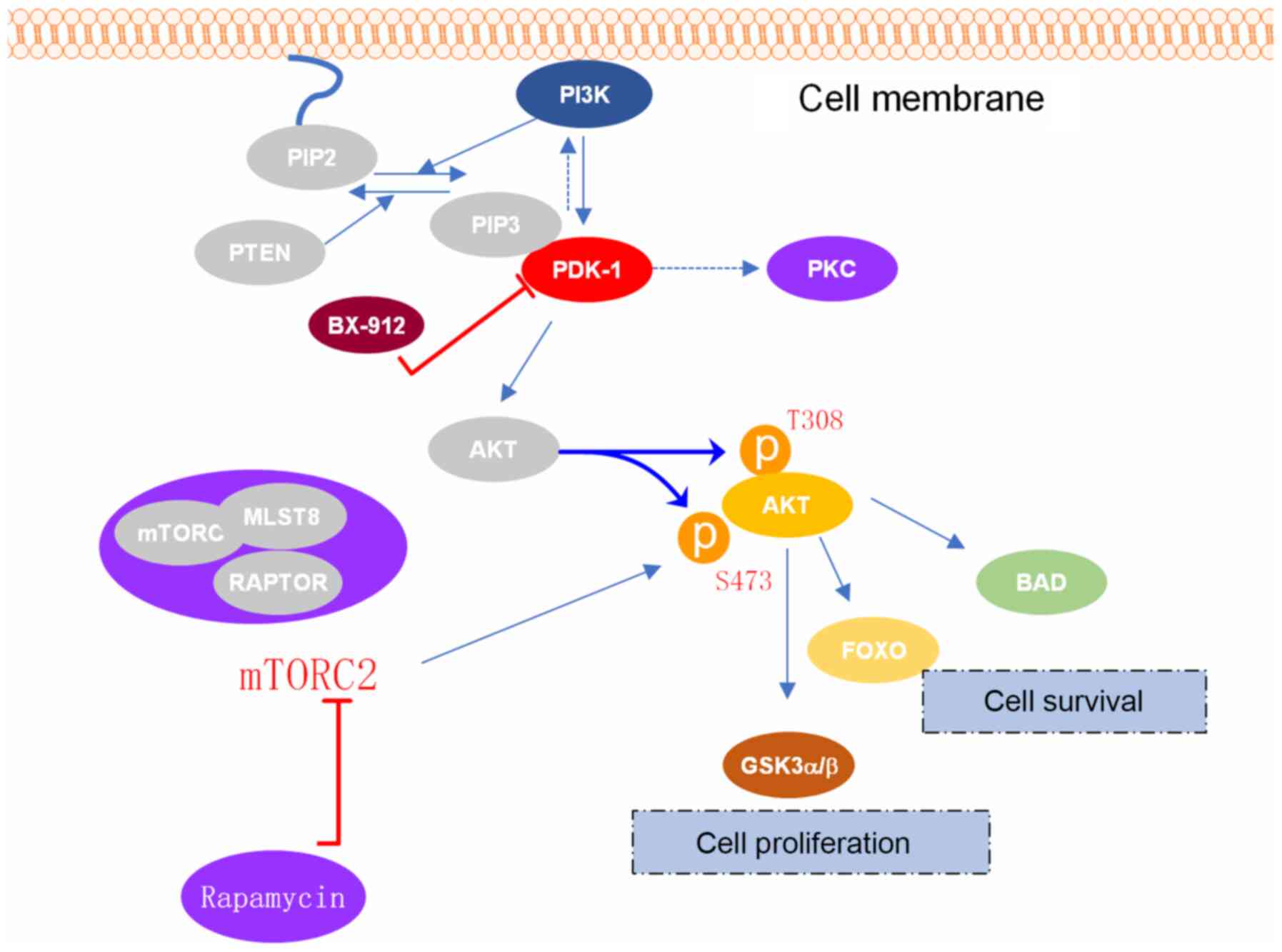|
1
|
Liu P, Lee S, Knoll J, Rauch A, Ostermay
S, Luther J, Malkusch N, Lerner UH, Zaiss MM, Neven M, et al: Loss
of menin in osteoblast lineage affects osteocyte-osteoclast
crosstalk causing osteoporosis. Cell Death Differ. 24:672–682.
2017. View Article : Google Scholar : PubMed/NCBI
|
|
2
|
Föger-Samwald U, Vekszler G, Hörz-Schuch
E, Salem S, Wipperich M, Ritschl P, Mousavi M and Pietschmann P:
Molecular mechanisms of osteoporotic hip fractures in elderly
women. Exp Gerontol. 73:49–58. 2016. View Article : Google Scholar : PubMed/NCBI
|
|
3
|
Indran IR, Liang RL, Min TE and Yong EL:
Preclinical studies and clinical evaluation of compounds from the
genus Epimedium for osteoporosis and bone health. Pharmacol Ther.
162:188–205. 2016. View Article : Google Scholar : PubMed/NCBI
|
|
4
|
Yoon JY, Baek CW, Kim HJ, Kim EJ, Byeon GJ
and Yoon JU: Remifentanil negatively regulates RANKL-induced
osteoclast differentiation and bone resorption by inhibiting
c-Fos/NFATc1 expression. Tissue Eng Regen Med. 15:333–340. 2018.
View Article : Google Scholar : PubMed/NCBI
|
|
5
|
Gu YX, Du J, Si MS, Mo JJ, Qiao SC and Lai
HC: The roles of PI3K/Akt signaling pathway in regulating MC3T3-E1
preosteoblast proliferation and differentiation on SLA and SLActive
titanium surfaces. J Biomed Mater Res A. 101:748–754. 2013.
View Article : Google Scholar : PubMed/NCBI
|
|
6
|
Ulici V, Hoenselaar KD, Agoston H,
McErlain DD, Umoh J, Chakrabarti S, Holdsworth DW and Beier F: The
role of Akt1 in terminal stages of endochondral bone formation:
Angiogenesis and ossification. Bone. 45:1133–1145. 2009. View Article : Google Scholar : PubMed/NCBI
|
|
7
|
Agas D, Sabbieti MG, Marchetti L, Xiao L
and Hurley MM: FGF-2 enhances Runx-2/Smads nuclear localization in
BMP-2 canonical signaling in osteoblasts. J Cell Physiol.
228:2149–2158. 2013. View Article : Google Scholar : PubMed/NCBI
|
|
8
|
Xiao D, Zhou Q, Gao Y, Cao B, Zhang Q,
Zeng G and Zong S: PDK1 is important lipid kinase for RANKL-induced
osteoclast formation and function via the regulation of the
Akt-GSK3β-NFATc1 signaling cascade. J Cell Biochem. 121:4542–4557.
2020. View Article : Google Scholar : PubMed/NCBI
|
|
9
|
Peng X, He J, Zhao J, Wu Y, Shi X, Du L,
Nong M, Zong S and Zeng G: Polygonatum sibiricum polysaccharide
promotes osteoblastic differentiation through the
ERK/GSK-3β/β-catenin signaling pathway in vitro. Rejuvenation Res.
21:44–52. 2018. View Article : Google Scholar : PubMed/NCBI
|
|
10
|
Klein J, Fasshauer M, Ito M, Lowell BB,
Benito M and Kahn CR: beta(3)-adrenergic stimulation differentially
inhibits insulin signaling and decreases insulin-induced glucose
uptake in brown adipocytes. J Biol Chem. 274:34795–34802. 1999.
View Article : Google Scholar : PubMed/NCBI
|
|
11
|
Shibata H, Toyama K, Shioya H, Ito M,
Hirota M, Hasegawa S, Matsumoto H, Takano H, Akiyama T, Toyoshima
K, et al: Rapid colorectal adenoma formation initiated by
conditional targeting of the Apc gene. Science. 278:120–123. 1997.
View Article : Google Scholar : PubMed/NCBI
|
|
12
|
Sakaue H, Nishizawa A, Ogawa W,
Teshigawara K, Mori T, Takashima Y, Noda T and Kasuga M:
Requirement for 3-phosphoinositide-kependent dinase-1 (PDK-1) in
insulin-induced glucose uptake in immortalized brown adipocytes. J
Biol Chem. 278:38870–38874. 2003. View Article : Google Scholar : PubMed/NCBI
|
|
13
|
Son KM, Park HC, Kim NR, Lee IS and Yang
HC: Enhancement of the ALP activity of C3H10T1/2 cells by the
combination of an oxysterol and apatite. Biomed Mater.
5:0441072010. View Article : Google Scholar : PubMed/NCBI
|
|
14
|
Dai Y, Zheng C and Li H: Inhibition of
miR-23a-3p promotes osteoblast proliferation and differentiation. J
Cell Biochem. Nov 6–2019.(Epub ahead of print). doi:
10.1002/jcb.29497. View Article : Google Scholar
|
|
15
|
Livak KJ and Schmittgen TD: Analysis of
relative gene expression data using real-time quantitative PCR and
the 2(-Delta Delta C(T)) method. Methods. 25:402–408. 2001.
View Article : Google Scholar : PubMed/NCBI
|
|
16
|
Jeon HL, Oh IS, Baek YH, Yang H, Park J,
Hong S and Shin JY: Zoledronic acid and skeletal-related events in
patients with bone metastatic cancer or multiple myeloma. J Bone
Miner Metab. 38:254–263. 2020. View Article : Google Scholar : PubMed/NCBI
|
|
17
|
Wu J, Zhang W, Ran Q, Xiang Y, Zhong JF,
Li SC and Li Z: The differentiation balance of bone marrow
mesenchymal stem cells is crucial to hematopoiesis. Stem Cells Int.
2018:15401482018. View Article : Google Scholar : PubMed/NCBI
|
|
18
|
Berendsen AD and Olsen BR: Bone
development. Bone. 80:14–18. 2015. View Article : Google Scholar : PubMed/NCBI
|
|
19
|
Wang J, Ma XY, Feng YF, Ma ZS, Ma TC,
Zhang Y, Li X, Wang L and Lei W: Magnesium ions promote the
biological behaviour of rat calvarial osteoblasts by activating the
PI3K/Akt signalling pathway. Biol Trace Elem Res. 179:284–293.
2017. View Article : Google Scholar : PubMed/NCBI
|
|
20
|
Peng XD, Xu PZ, Chen ML, Hahn-Windgassen
A, Skeen J, Jacobs J, Sundararajan D, Chen WS, Crawford SE, Coleman
KG and Hay N: Dwarfism, impaired skin development, skeletal muscle
atrophy, delayed bone development, and impeded adipogenesis in mice
lacking Akt1 and Akt2. Genes Dev. 17:1352–1365. 2003. View Article : Google Scholar : PubMed/NCBI
|
|
21
|
Zhu YR, Min H, Fang JF, Zhou F, Deng XW
and Zhang YQ: Activity of the novel dual phosphatidylinositol
3-kinase/mammalian target of rapamycin inhibitor NVP-BEZ235 against
osteosarcoma. Cancer Biol Ther. 16:602–609. 2015. View Article : Google Scholar : PubMed/NCBI
|
|
22
|
Alessi DR, James SR, Downes CP, Holmes AB,
Gaffney PR, Reese CB and Cohen P: Characterization of a
3-phosphoinositide-dependent protein kinase which phosphorylates
and activates protein kinase Balpha. Curr Biol. 7:261–269. 1997.
View Article : Google Scholar : PubMed/NCBI
|
|
23
|
Frödin M, Jensen CJ, Merienne K and
Gammeltoft S: A phosphoserine-regulated docking site in the protein
kinase RSK2 that recruits and activates PDK1. EMBO J. 19:2924–2934.
2000. View Article : Google Scholar : PubMed/NCBI
|
|
24
|
Abeyrathna P and Su Y: The critical role
of Akt in cardiovascular function. Vascul Pharmacol. 74:38–48.
2015. View Article : Google Scholar : PubMed/NCBI
|
|
25
|
Wang F, Shan S, Huo Y, Xie Z, Fang Y, Qi
Z, Chen F, Li Y and Sun B: MiR-155-5p inhibits PDK1 and promotes
autophagy via the mTOR pathway in cervical cancer. Int J Biochem
Cell Biol. 99:91–99. 2018. View Article : Google Scholar : PubMed/NCBI
|
|
26
|
Williams MR, Arthur JS, Balendran A, van
der Kaay J, Poli V, Cohen P and Alessi DR: The role of
3-phosphoinositide-dependent protein kinase 1 in activating AGC
kinases defined in embryonic stem cells. Curr Biol. 10:439–448.
2000. View Article : Google Scholar : PubMed/NCBI
|
|
27
|
Qiu Z, Li H, Zhang Z, Zhu Z, He S, Wang X,
Wang P, Qin J, Zhuang L, Wang W, et al: A pharmacogenomic landscape
in human liver cancers. Cancer Cell. 36:179–193.e111. 2019.
View Article : Google Scholar : PubMed/NCBI
|
|
28
|
Coppé JP, Mori M, Pan B, Yau C, Wolf DM,
Ruiz-Saenz A, Brunen D, Prahallad A, Cornelissen-Steijger P, Kemper
K, et al: Mapping phospho-catalytic dependencies of
therapy-resistant tumours reveals actionable vulnerabilities. Nat
Cell Biol. 21:778–790. 2019. View Article : Google Scholar : PubMed/NCBI
|
|
29
|
Qian XJ, Li XL, Xu X, Wang X, Feng QT and
Yang CJ: α-SMA-Cre-mediated excision of PDK1 reveals an essential
role of PDK1 in regulating morphology of cardiomyocyte and tumor
progression in tissue microenvironment. Pathol Biol (Paris).
63:91–100. 2015. View Article : Google Scholar : PubMed/NCBI
|
|
30
|
Isomoto S, Hattori K, Ohgushi H, Nakajima
H, Tanaka Y and Takakura Y: Rapamycin as an inhibitor of osteogenic
differentiation in bone marrow-derived mesenchymal stem cells. J
Orthop Sci. 12:83–88. 2007. View Article : Google Scholar : PubMed/NCBI
|
|
31
|
Phornphutkul C, Lee M, Voigt C, Wu KY,
Ehrlich MG, Gruppuso PA and Chen Q: The effect of rapamycin on bone
growth in rabbits. J Orthop Res. 27:1157–1161. 2009. View Article : Google Scholar : PubMed/NCBI
|
|
32
|
Singha UK, Jiang Y, Yu S, Luo M, Lu Y,
Zhang J and Xiao G: Rapamycin inhibits osteoblast proliferation and
differentiation in MC3T3-E1 cells and primary mouse bone marrow
stromal cells. J Cell Biochem. 103:434–446. 2008. View Article : Google Scholar : PubMed/NCBI
|
|
33
|
Pan JM, Wu LG, Cai JW, Wu LT and Liang M:
Dexamethasone suppresses osteogenesis of osteoblast via the
PI3K/Akt signaling pathway in vitro and in vivo. J Recept Signal
Transduct Res. 39:80–86. 2019. View Article : Google Scholar : PubMed/NCBI
|
|
34
|
Owen TA and Pan LC: Isolation and culture
of rodent osteoprogenitor cells. Methods Mol Biol. 455:3–18. 2008.
View Article : Google Scholar : PubMed/NCBI
|
|
35
|
Selim AA, Castaneda JL, Owen TA, Popoff SN
and Safadi FF: The role of osteoactivin-derived peptides in
osteoblast differentiation. Med Sci Monit. 13:BR259–BR270.
2007.PubMed/NCBI
|
|
36
|
Xi Y, Huang H, Zhao Z, Ma J and Chen Y:
Corrigendum to ‘Tissue inhibitor of metalloproteinase 1 suppresses
growth and differentiation of osteoblasts and osteoclasts by
targeting the AKT pathway’ [Exp. Cell Res. 389 (2020)
111930–11940]. Exp Cell Res. 394:1121892020. View Article : Google Scholar : PubMed/NCBI
|
|
37
|
Hadzir SN, Ibrahim SN, Abdul Wahab RM,
Zainol Abidin IZ, Senafi S, Ariffin ZZ, Abdul Razak M and Zainal
Ariffin SH: Ascorbic acid induces osteoblast differentiation of
human suspension mononuclear cells. Cytotherapy. 16:674–682. 2014.
View Article : Google Scholar : PubMed/NCBI
|
|
38
|
Huang RX and Tao J: Nicotinamide
mononucleotide attenuates glucocorticoid-induced osteogenic
inhibition by regulating the SIRT1/PGC-1α signaling pathway. Mol
Med Rep. 22:145–154. 2020. View Article : Google Scholar : PubMed/NCBI
|
|
39
|
Fu X, Yang H, Zhang H, Wang G, Liu K, Gu
Q, Tao Y, Chen G, Jiang X, Li G, et al: Improved osteogenesis and
upregulated immunogenicity in human placenta-derived mesenchymal
stem cells primed with osteogenic induction medium. Stem Cell Res
Ther. 7:1382016. View Article : Google Scholar : PubMed/NCBI
|
















